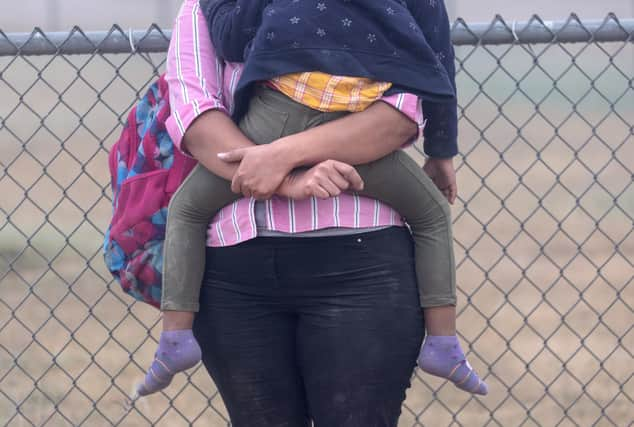A child living with kinship carers in Scotland should get the same level of support as any other – Miles Briggs


Kinship carers play a vital role in providing stable, nurturing homes for children who are unable to live with their parents. This can be a grandparent or close family member who takes over parenting responsibilities for a child.
We do not know the exact number of children living with kinship carers in Scotland.
Advertisement
Hide AdAdvertisement
Hide AdAccording to Scottish Government figures, the number of children living in a formal arrangement in 2020 was 4,456, up from 3,172 children in 2010. However, in 2011, a Bristol University report estimated 12,360 children in Scotland were living in some form of kinship-care arrangement. This number is likely much higher now.
Proper support for kinship carers is an issue which is very important to me and one which I have been campaigning on since I was elected as an MSP in 2016. They should have access to equal levels of support to give each child the best possible opportunities in life.
Each local authority in Scotland takes a different approach to how kinship care payments and support is delivered, which means people could be receiving vastly different levels of support, depending on where they live in Scotland.
The way a child came to be cared for by relatives can also have a significant impact on the support they receive. Local authorities have discretion over whether the child was at risk of being looked after by the local authority, which determines whether the council has to provide kinship care support.
Advertisement
Hide AdAdvertisement
Hide AdThe complexities of the current system make things harder for kinship carers, not easier. It is important to keep in mind that many become carers at short notice and there are significant financial costs to raising a child.
In early 2020 the Independent Care Review referenced a survey which found that more than four out of five kinship carers reported that looking after a child had caused them financial hardship, and nearly half said that the process of getting financial support was very difficult.
Following the Independent Care Review in early 2020, the ‘Promise Scotland’ was established.
The purpose of the Promise is to drive changes to ensure that every child in Scotland has a stable upbringing, regardless of their situation. This means that children who are in kinship care should receive the same level of support as any other child.
Advertisement
Hide AdAdvertisement
Hide AdThere is ongoing work to establish a Scottish Recommended Allowance for relatives who look after a child. The level of financial support they receive is set by each local authority, meaning big differences from one region to another.
In Edinburgh, it is lower than most other local authorities with a payment of £124.72 a week for a five to ten-year-old child, compared to East Renfrewshire where the payment is £358.56. We must establish a base level of pay so that we are not seeing such big differences from place to place.
It is time for Scotland to proactively support kinships carers, as opposed to making it difficult for them to get the help they need.
Miles Briggs is a Conservative MSP for Lothian
Comment Guidelines
National World encourages reader discussion on our stories. User feedback, insights and back-and-forth exchanges add a rich layer of context to reporting. Please review our Community Guidelines before commenting.